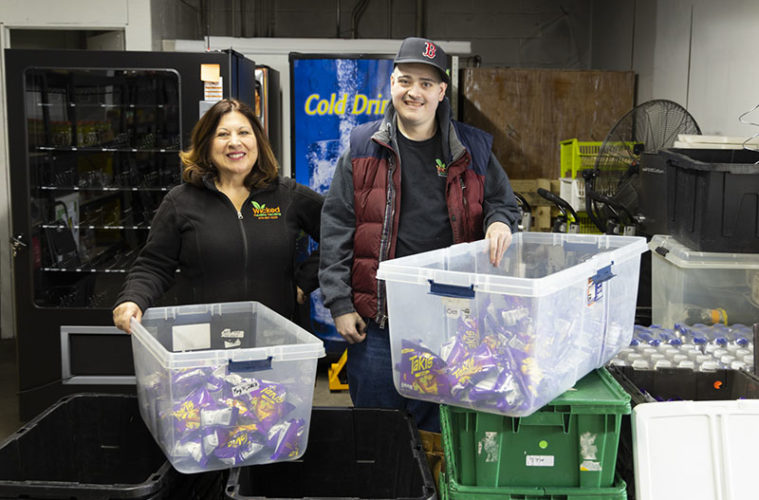“Help Wanted” signs are everywhere. It is impossible to go to any North Shore community and not see a sign in a restaurant or store window looking for help. It’s not a surprise as the unemployment rate in the Boston metro area was just 2.5 percent in November, according to the U.S. Bureau of Labor Statistics.
While the rate is at an all-time low, the unemployment rate for people with disabilities continues to be staggeringly high. The U. S. Bureau of Labor Statistics reported that in 2021, only 19.1 percent of persons with a disability were employed. That means that more than 4 out of 5 people with disabilities are unemployed or underemployed.
Northeast Arc, a not-for-profit organization that has been helping children and adults with or at risk for developing disabilities become full participants in the community for nearly 70 years, is here to help. Its supported employment program is successfully matching people in need of jobs with companies that need employees.
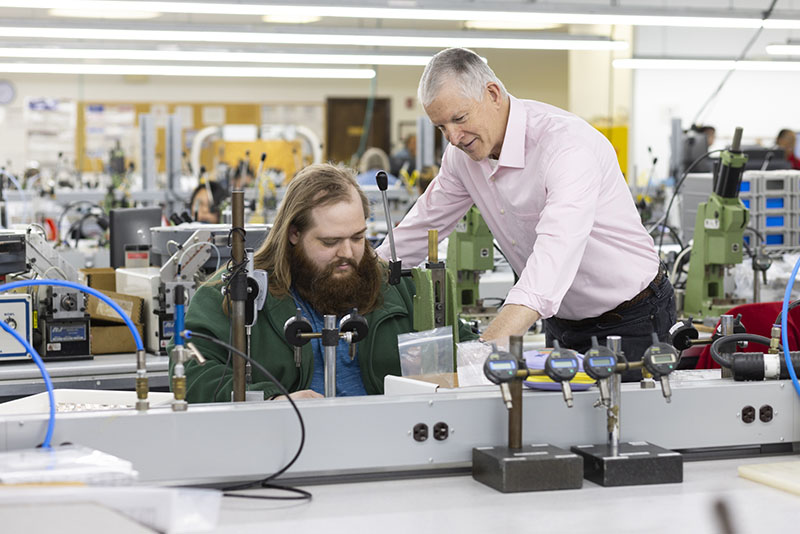
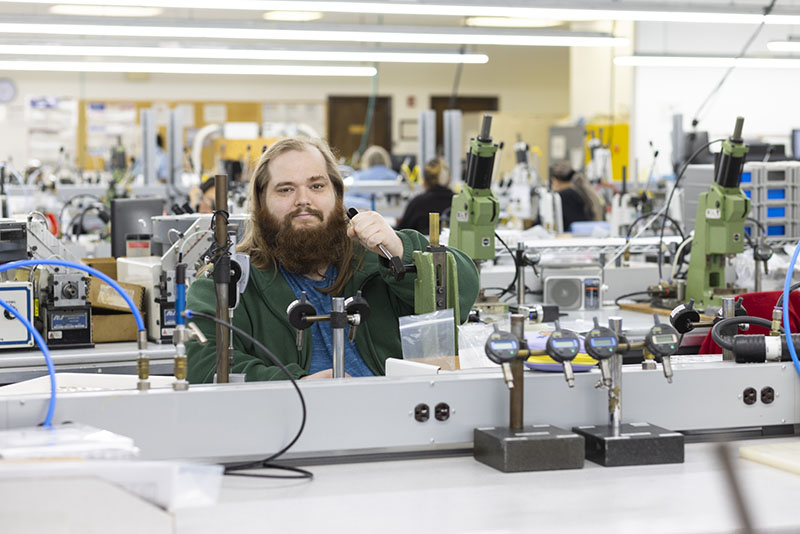
Northeast Arc’s program has been in place for years, but it wasn’t until recently that employers started looking at it as one potential solution.
In 2022, the seven-person team at Northeast Arc’s Supported Employment Department placed 30 people with disabilities in competitive community employment. The organization has placed individuals in a variety of roles and industries, but in the past year roles in coffee shops and retail stores have been a particular area of growth.
Lauren Tobey, supported employment program director at Northeast Arc, has been with the organization for 13 years and says the program has recently seen tremendous growth. “Since we opened the Breaking Grounds café in Peabody a few years ago and more recently parcels, our unique gift shop at Liberty Tree Mall, we have been able to provide real, hands-on training to get the people we support jobs in the community.”
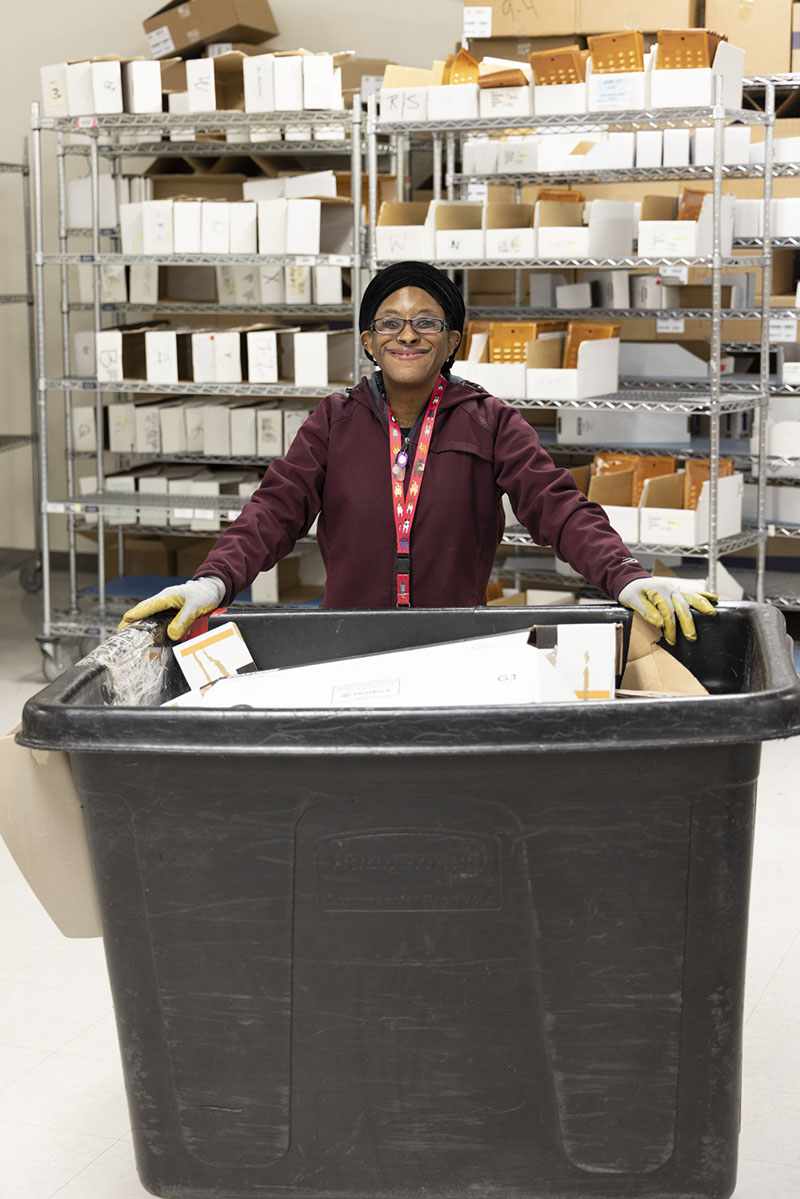
The journey to getting a paycheck starts with a situational assessment to help build skills and determine where an individual might be successful. Once a prospective employee is ready, a job coach works to match them with an employer. The job coach goes to work with the new employee to help with onboarding and training. “They work to build natural supports within the environment, so the new employee doesn’t always have to reach out to their job coach,” adds Tobey. “The employee learns to go to coworkers or a supervisor for help and guidance, and the job coach backs off. Once the employee is able to work independently, the job coach continues to check in with the employer and the employee to make sure things are going well and help if any retraining or new training is necessary.”
It’s a program that has proven to work. Stephanie Anderson of Lynn has been working at Omnicare of Northern Massachusetts since 2005. Anderson loves her job, which entails supporting the long-term care pharmacy’s maintenance personnel by keeping the pharmacy clean and organized.
“Stephanie always wears a big smile on her face, has a desire to be around others, is constantly engaging with employees and prioritizing a team-oriented environment,” says Darci Halmen, general manager of Omnicare of Northern Massachusetts. “While Stephanie doesn’t speak, and uses sign language to communicate, she’s always very physically engaged with team members, and some employees have even picked up on certain signs to use back in conversation.”
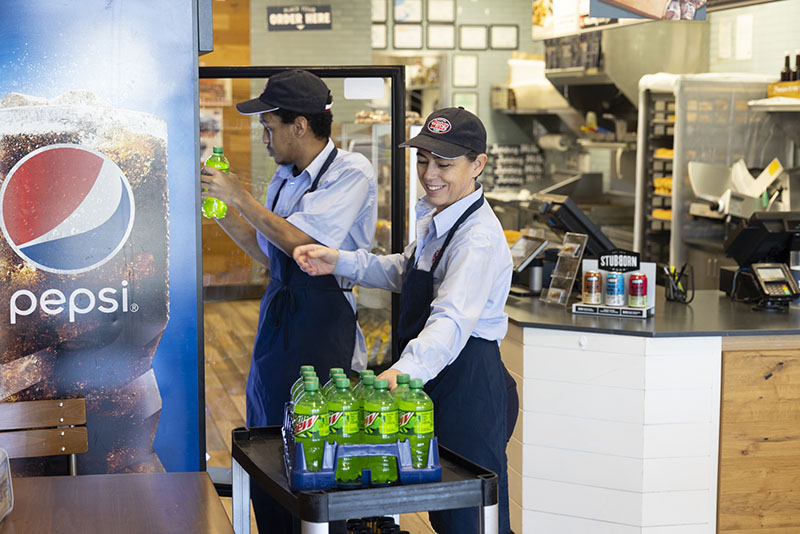
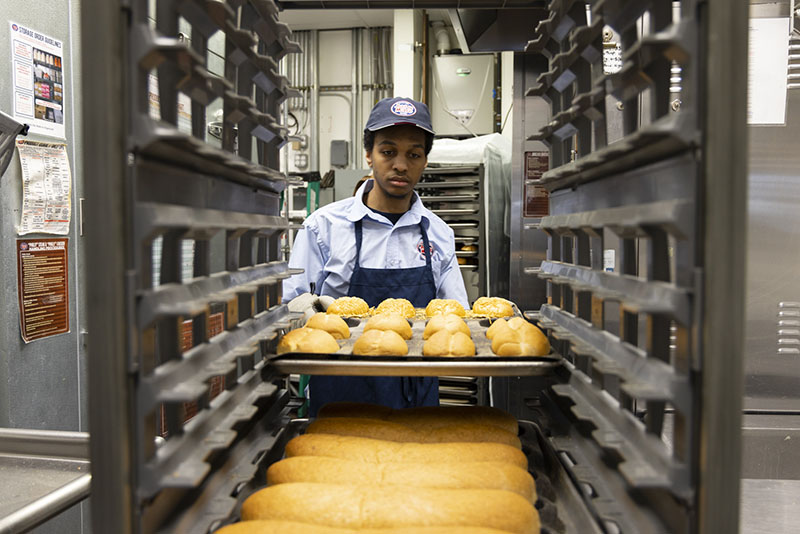
At Delta Electronics, Dakota Smith of Beverly assembles connector parts and has quickly become a valued member of the team. “Dakota is a great worker who completes all of his assignments and gets along with everyone,” says Kurt Smith, manufacturing manager and Smith’s supervisor. “He has a consistent work ethic, good attendance, and is a great employee. If Dakota is representative of the type of worker coming from Northeast Arc it’s a win, win for both the employee and employer,” says Smith.
Smith’s sentiment is echoed by Tina Paine, owner of Wicked Healthy Vending, with an office in Peabody and a warehouse in North Reading. Paine hired Steven Riley of Wakefield in August because “it’s the right thing to do.” Riley, who trained at Breaking Grounds, works in the warehouse. He fills bins with products when they are getting low, sets up machines, stocks shelves, breaks down boxes, and cleans the warehouse when drivers are out on their routes.
“Steven’s job coach checks in from time to time, and his family support has been excellent,” says Paine. “Steven’s work makes the job easier for our drivers, and they all appreciate him.”
“Our mission is not only providing healthy options through our vending machines, but also to be involved in the community,” added Paine. “Giving someone an opportunity is a win for the individual and a win for the organization. I highly recommend that any business that has a need consider hiring someone with a disability.”
For Katie Cancro, who owns Jersey Mike’s in Beverly and the recently opened location in Burlington, it’s personal. Her 17-year-old son, Robert, has autism. Cancro recently hired Antonio Perez of Beverly and couldn’t be happier with the decision. “Antonio is doing everything he was trained on, and we have even stretched him, and he has been very receptive,” says Cancro. “He fills coolers, chips, jumps on the dishes without even asking, and recently learned how to wrap a sub. He picked up a strong work ethic very quickly.We don’t think of ourselves as owners, we are mentors,” adds Cancro. “We are focused on guiding employees to succeed, whether that is a teenager, someone with a disability in their first job, or an established employee who wants to expand their career. All we ask is that our employees make kindness their top priority.”
“Our program not only solves a problem for employers and provides a paycheck for the employee, but it also provides a sense of purpose for people who are often overlooked and underemployed,” said Lauren Tobey. “For as many folks that we have placed, we have hundreds more who are ready, willing, and able to work. They just need an opportunity. The companies we work with are happy they made the decision to hire someone with a disability and are often reaching out asking for us to send another employee to them.”
If you are interested in learning more about the Northeast Arc’s supported employment program, visit ne-arc.org/services/community-employment

